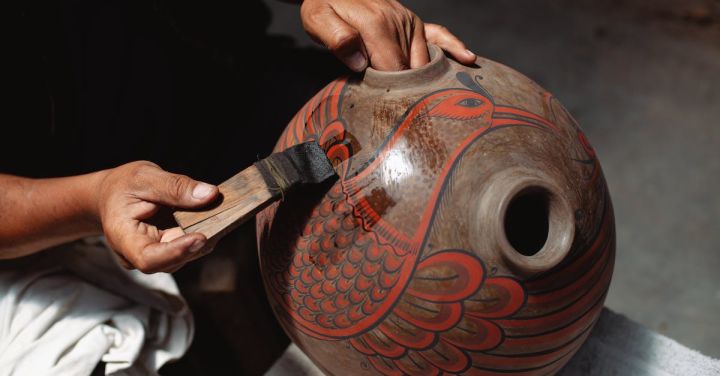Are Artisan Crafts Sustainable Options for Souvenirs?

When it comes to choosing souvenirs, many travelers are now leaning towards more sustainable options. One such option that has gained popularity in recent years is artisan crafts. These unique handmade items not only make for beautiful mementos but also have several sustainable advantages. In this article, we will explore the sustainability of artisan crafts as souvenirs and why they are a great choice for conscientious travelers.
Preserving Traditional Techniques and Culture
Artisan crafts are often deeply rooted in the cultural heritage of a particular region or country. The creation of these crafts requires skills and techniques that have been passed down through generations. By purchasing artisan crafts, travelers are not only supporting the local economy but also contributing to the preservation of traditional techniques and culture. This helps to ensure that these valuable traditions are not lost to modernization.
Environmentally Friendly Production Methods
Artisan crafts are typically made using natural and sustainable materials. Unlike mass-produced souvenirs, which are often made from cheap and non-biodegradable materials, artisan crafts are crafted using materials such as wood, clay, natural fibers, and recycled materials. These materials have a lower environmental impact compared to their synthetic counterparts. Additionally, artisans often use traditional production methods that require less energy and produce fewer emissions.
Empowering Local Communities
By purchasing artisan crafts, travelers can directly support local artisans and their communities. Artisans are usually small-scale producers who rely on their craft for their livelihood. When travelers buy their crafts, they contribute to the economic empowerment of these communities. This, in turn, helps to reduce poverty and inequality, creating a more sustainable and equitable society.
Promoting Fair Trade Practices
Artisan crafts are often produced under fair trade principles, ensuring that the artisans receive fair wages and working conditions. Fair trade promotes social and economic justice by creating opportunities for marginalized producers. When travelers choose artisan crafts, they are supporting fair trade practices and contributing to the well-being of the artisans and their families.
Unique and Meaningful Souvenirs
One of the main reasons travelers opt for artisan crafts as souvenirs is their uniqueness and authenticity. These handmade items are one-of-a-kind, reflecting the creativity and skill of the artisans who create them. Unlike mass-produced souvenirs, which are often generic and lack character, artisan crafts tell a story. They have a personal touch that makes them more meaningful and memorable.
Durability and Longevity
Artisan crafts are typically made with a focus on quality and durability. Unlike mass-produced souvenirs that are designed to be disposable, artisan crafts are meant to last. This means that they have a lower impact on the environment in the long run, as they don’t end up in landfills after a short period of use. By investing in artisan crafts, travelers can enjoy their souvenirs for years to come, creating a sustainable and lasting connection to the places they have visited.
In Conclusion: Artisan Crafts as Sustainable Souvenirs
In conclusion, artisan crafts are indeed sustainable options for souvenirs. They contribute to the preservation of traditional techniques and culture, promote environmentally friendly production methods, empower local communities, and support fair trade practices. Moreover, these unique and meaningful souvenirs are durable and long-lasting, creating a sustainable connection between travelers and the places they have visited. So next time you’re looking for a souvenir, consider choosing an artisan craft and support sustainability while bringing home a piece of culture and art.